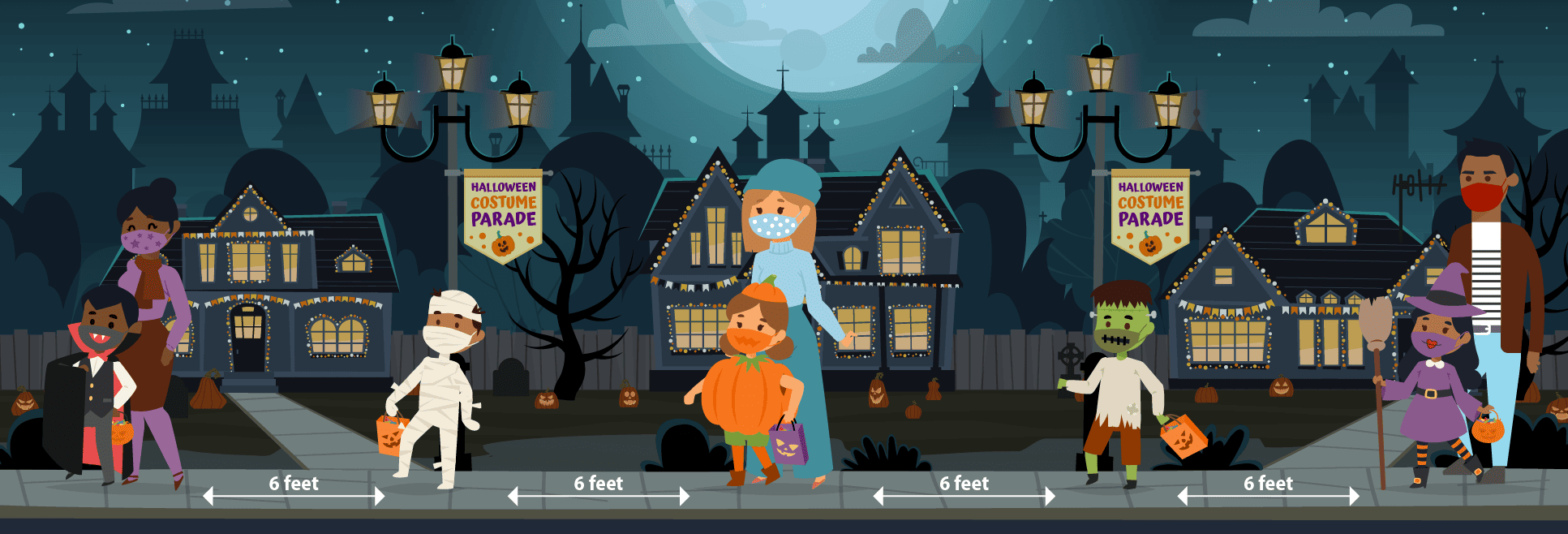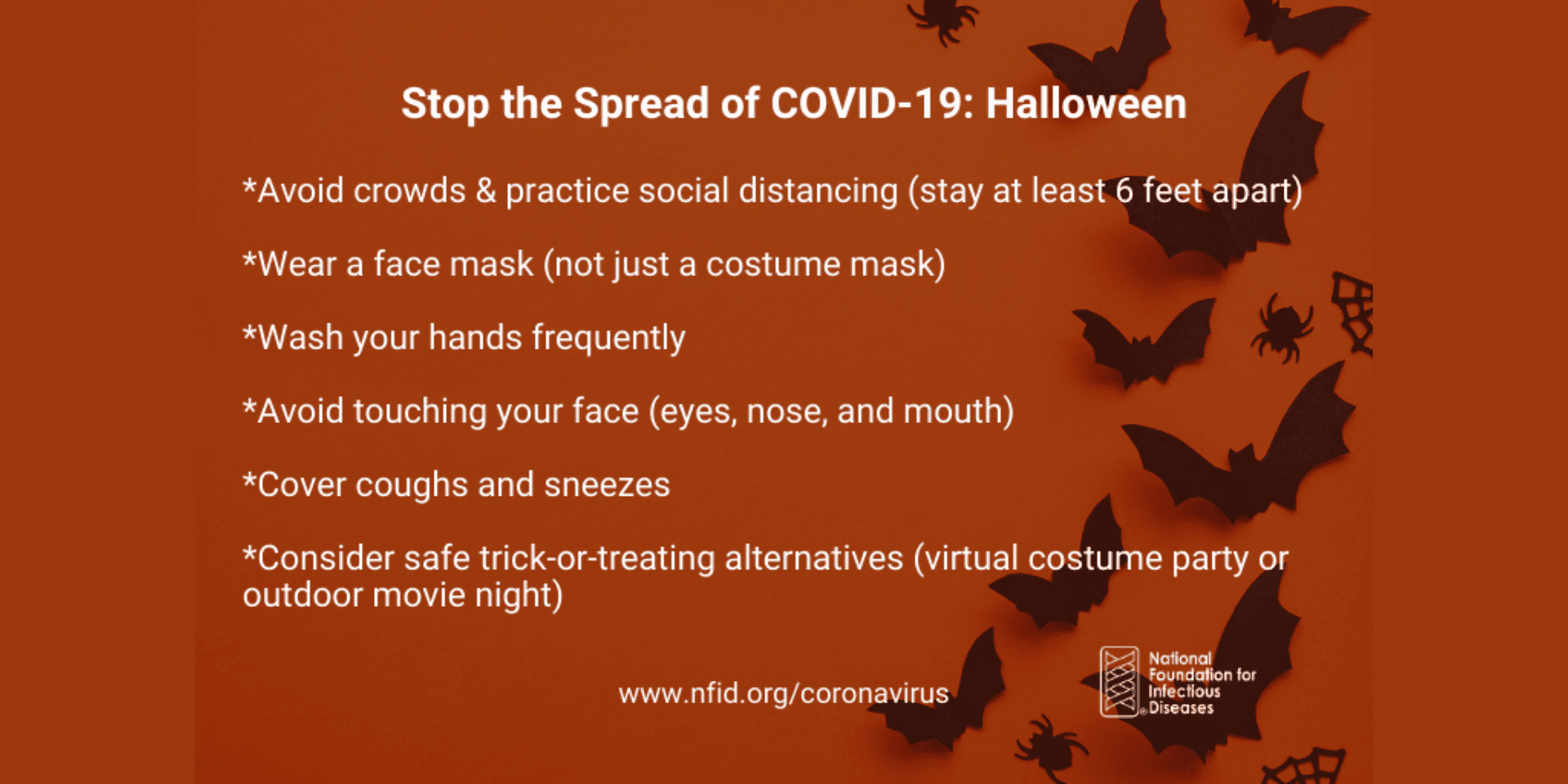
As if Halloween weren’t scary enough, respiratory viruses can also haunt trick-or-treating traditions. Although some Halloween activities may increase the risk of getting or spreading COVID-19 or influenza (flu), there are things you can do to help protect yourself and your family while still having fun. You may need to avoid trick-or-treating or creatively change the way it is done, but no matter how you choose to celebrate, taking some simple precautions can make this Halloween a safer holiday for everyone:
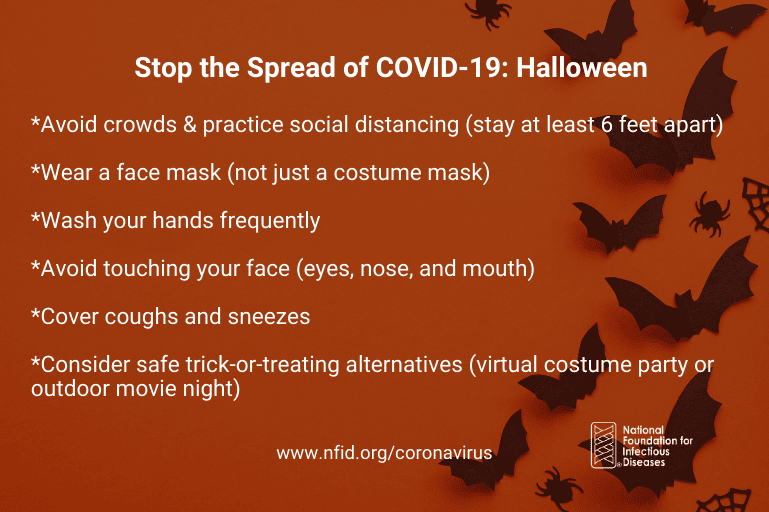 Maintain a 6-foot distance from others. Be careful to avoid groups or clustering at doorsteps. Indoors and outdoors, you are more likely to get or spread COVID-19 or flu when you are in close contact with others for an extended period of time.
Maintain a 6-foot distance from others. Be careful to avoid groups or clustering at doorsteps. Indoors and outdoors, you are more likely to get or spread COVID-19 or flu when you are in close contact with others for an extended period of time.
If you are handing out treats, sit outdoors and wear a face mask. Consider handing out individually pre-packaged treats, or set up a station with treats for kids to take on their own.
If you are trick-or-treating, note that a costume mask is NOT a substitute for a cloth face mask. Consider making a cloth mask part of your costume. Do NOT wear a costume mask over a cloth mask as it can make breathing more difficult.
Wash hands thoroughly before handling treats. If you are trick-or-treating, take hand sanitizer with you and use it after touching objects, surfaces, or other people. Use hand sanitizer with at least 60 percent alcohol. Wash hands with soap and water for at least 20 seconds when you get home and before you eat any treats.
The Centers for Disease Control and Prevention (CDC) and the American Academy of Pediatrics suggest many other ways to safely celebrate Halloween:
- Hide Halloween treats in and around your house. Hold a Halloween-themed scavenger hunt with household members.
- Host an outdoor Halloween movie night with friends or neighbors or an indoor movie night with your household members. Or have a virtual movie night and let your child watch with their friends while video chatting, with everyone starting the movie at the same time.
- Look for safe outdoor community events, such as programs offered by parks, pumpkin patches, or zoos. Avoid indoor events such as haunted houses. Even when outdoors, avoid crowds and follow safe distance rules.
- Show off your costumes with an outdoor parade or a virtual costume party so everyone can enjoy viewing the costumes from a safe distance.
When you get home, remind everyone in the family to wash hands thoroughly with soap and water for at least 20 seconds.
Get Vaccinated to #FightFlu
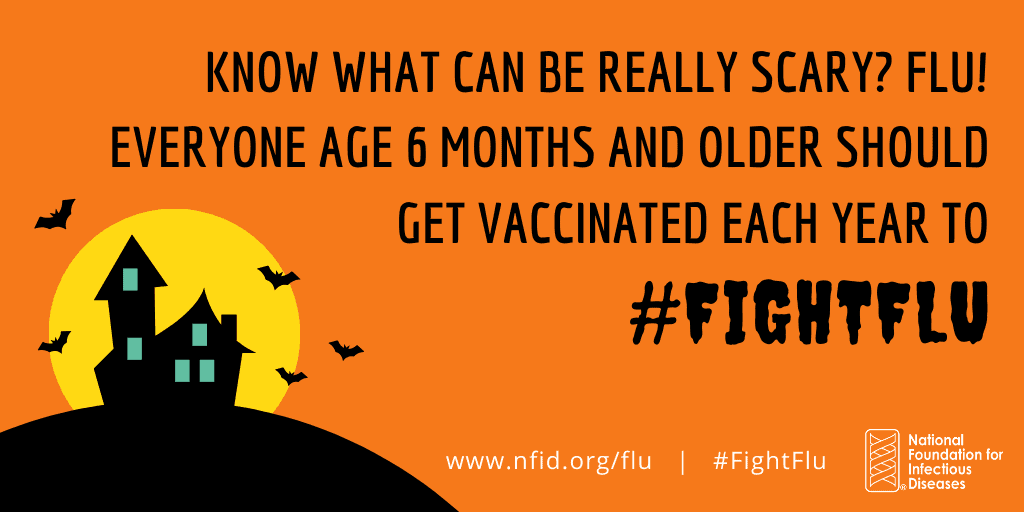 Getting a flu vaccine is an essential part of protecting your health and your family’s health this time of year. CDC recommends that all individuals age 6 months and older get vaccinated against flu annually. Flu vaccination is especially important this year to help protect individuals and communities, and prevent additional strain on an already overburdened US healthcare system. Learn more at: www.nfid.org/flu.
Getting a flu vaccine is an essential part of protecting your health and your family’s health this time of year. CDC recommends that all individuals age 6 months and older get vaccinated against flu annually. Flu vaccination is especially important this year to help protect individuals and communities, and prevent additional strain on an already overburdened US healthcare system. Learn more at: www.nfid.org/flu.
Note: This is a rapidly changing situation. For current information on COVID-19, visit www.coronavirus.gov and www.nfid.org/coronavirus.
To join the conversation and get the latest news on infectious diseases, follow NFID on Twitter using the hashtags #COVID-19 #StopTheSpread #FightFlu, like us on Facebook, follow us on Instagram, join the NFID LinkedIn Group, and subscribe to receive future NFID Updates.
Related Posts

Infectious Diseases in the News
Read recent news of interest from the world of infectious diseases including insights and updates on COVID-19, handwashing, hepatitis, malaria, measles, and respiratory syncytial virus (RSV) …
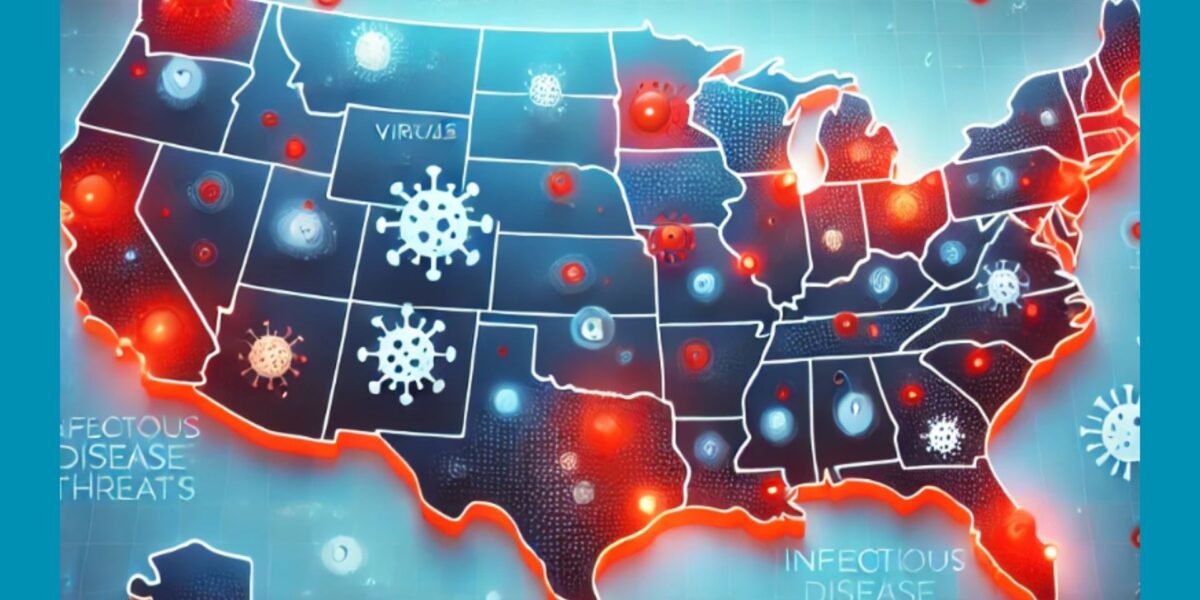
News Round-Up: Infectious Disease Threats
According to NFID website poll, there are several worrisome infectious disease threats. Read recent news on topics of greatest concern, including avian influenza (bird flu), measles, and respiratory syncytial virus (RSV) …

Vaccines and Heart Health: A Vital Connection
Heart disease can increase the risk of serious or fatal complications from respiratory diseases including COVID-19, flu, and RSV

